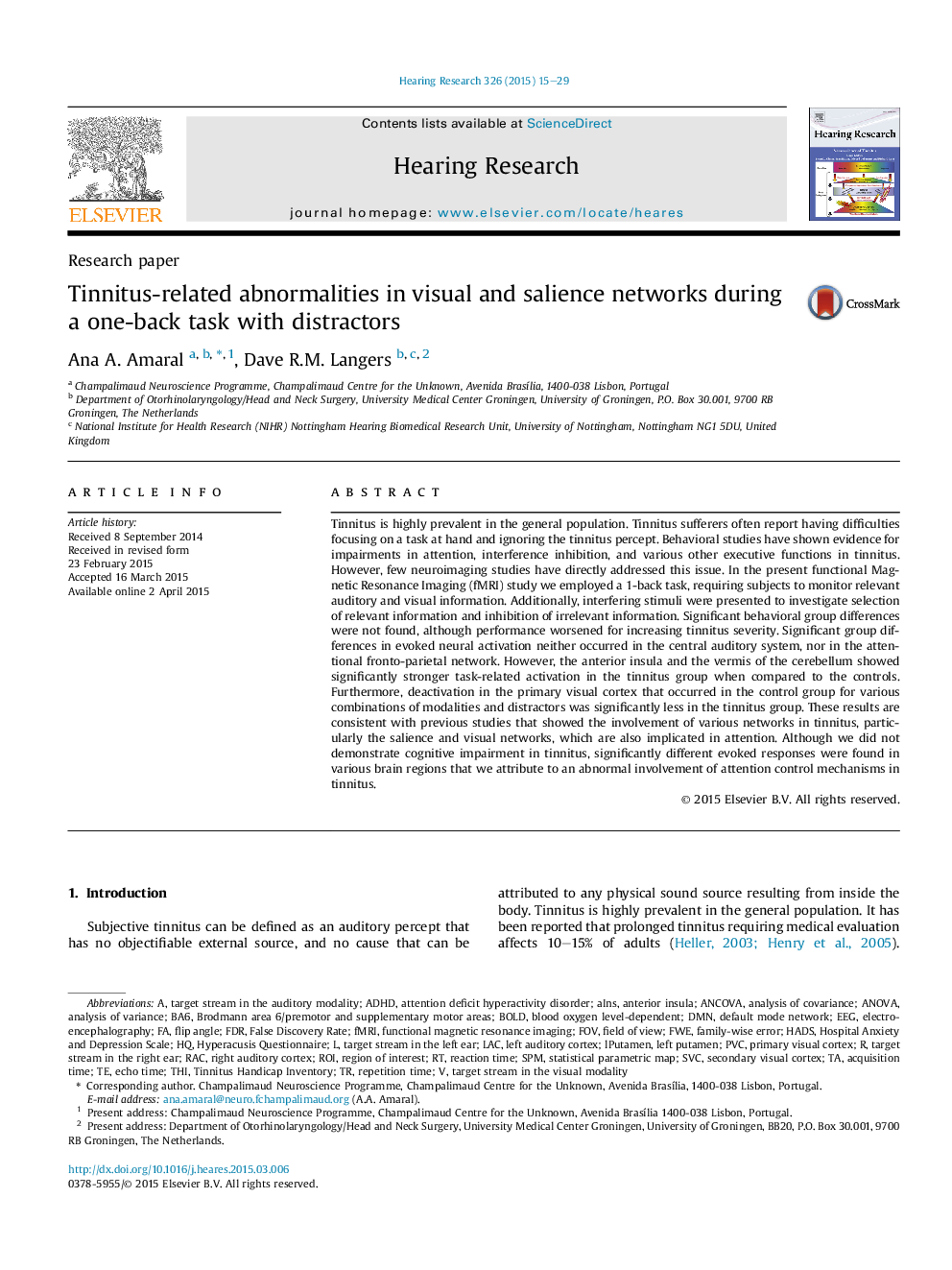| Article ID | Journal | Published Year | Pages | File Type |
|---|---|---|---|---|
| 4355105 | Hearing Research | 2015 | 15 Pages |
Tinnitus is highly prevalent in the general population. Tinnitus sufferers often report having difficulties focusing on a task at hand and ignoring the tinnitus percept. Behavioral studies have shown evidence for impairments in attention, interference inhibition, and various other executive functions in tinnitus. However, few neuroimaging studies have directly addressed this issue. In the present functional Magnetic Resonance Imaging (fMRI) study we employed a 1-back task, requiring subjects to monitor relevant auditory and visual information. Additionally, interfering stimuli were presented to investigate selection of relevant information and inhibition of irrelevant information. Significant behavioral group differences were not found, although performance worsened for increasing tinnitus severity. Significant group differences in evoked neural activation neither occurred in the central auditory system, nor in the attentional fronto-parietal network. However, the anterior insula and the vermis of the cerebellum showed significantly stronger task-related activation in the tinnitus group when compared to the controls. Furthermore, deactivation in the primary visual cortex that occurred in the control group for various combinations of modalities and distractors was significantly less in the tinnitus group. These results are consistent with previous studies that showed the involvement of various networks in tinnitus, particularly the salience and visual networks, which are also implicated in attention. Although we did not demonstrate cognitive impairment in tinnitus, significantly different evoked responses were found in various brain regions that we attribute to an abnormal involvement of attention control mechanisms in tinnitus.
